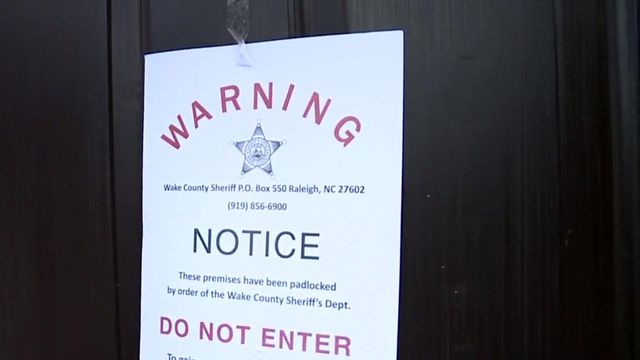State's rental assistance program not quite ready, should open next week
$175 million project was announced in late August.
Posted — UpdatedThe state is "in the process of finalizing all the pieces," and the nonprofits and local governments that will help run the program are getting training this week, according to Haley Pfeiffer Haynes, spokeswoman for the state Office of Recovery and Resiliency, which will oversee the program.
As announced, the program will use $175 million to help people avoid eviction and help homeless people find housing. Asked why it's taken until now to get the program launched, Pfeiffer Haynes said there were a lot of steps.
Officials had to write eligibility policies, decide what documentation would be required, what rules landlords will face if they accept funding and recruit community partners in all 100 counties, she said. The rules laid out had to fit the regulations for two separate federal programs that the money will be drawn from.
"We have been working quite feverishly," Pfeiffer Haynes said in an email.
The end of the year could bring a massive eviction crisis, as federal and state orders that put evictions on hold during the coronavirus pandemic expire. Housing advocates say the new state program will help, but it may not be enough to keep people off the streets.
North Carolina's eviction rate in 2016 was 4.61 percent – almost double the national rate of 2.34 percent. The pandemic and associated economic downturn have made the problem worse, as data from the United Way show requests for rental assistance have tripled since the pandemic began.
"These aren’t just people who decided not to pay their rent. We’re really specifically talking about folks who’ve seen a decrease in income because of COVID-19," McDowell said.
Affordable housing problems are usually about supply not keeping pace with demand or costs outpacing income, she added, but the pandemic created an unprecedented crisis.
Rent assistance is one of the state's biggest needs in an economy waylaid by closures linked to the coronavirus pandemic. Requests for rental assistance dominate calls into the United Way's 211 help line, totaling more than 55 percent of those calls since April.
The next two highest categories of calls are people seeking information about shelters and low-cost housing, according to figures from 211.
This program – Housing Opportunities and Prevention of Evictions, or HOPE – will provide rent and utility assistance for renters who:
- Have been affected financially by the pandemic
- Have a household income at or below 80 percent of their area's median income
- Are behind on rent or utility bills when they apply
There's no monetary cap on assistance, Pfeiffer Haynes said, but rent assistance is limited to six months.
Roughly $94 million will support rent and utility payments to prevent evictions, and the money will flow through community agencies across the state. Another $53 million will help families experiencing homelessness or facing the immediate risk of homelessness.
The final $28 million will be administered by local governments to help people pay rent and utility bills, but the money may also pay for internet access, food distribution, virus testing and diagnosis and training for health care workers, the Governor's Office said in August.
"I don’t think it’s going to be enough," McDowell said, noting no one has even addressed helping landlords who have lost months and months of rent payments. "I do think the crisis is going to be larger nationally than the funding that exists will be able to support. So, I think we have to get creative. I think we have to be realistic as well."
Related Topics
• Credits
Copyright 2024 by Capitol Broadcasting Company. All rights reserved. This material may not be published, broadcast, rewritten or redistributed.





